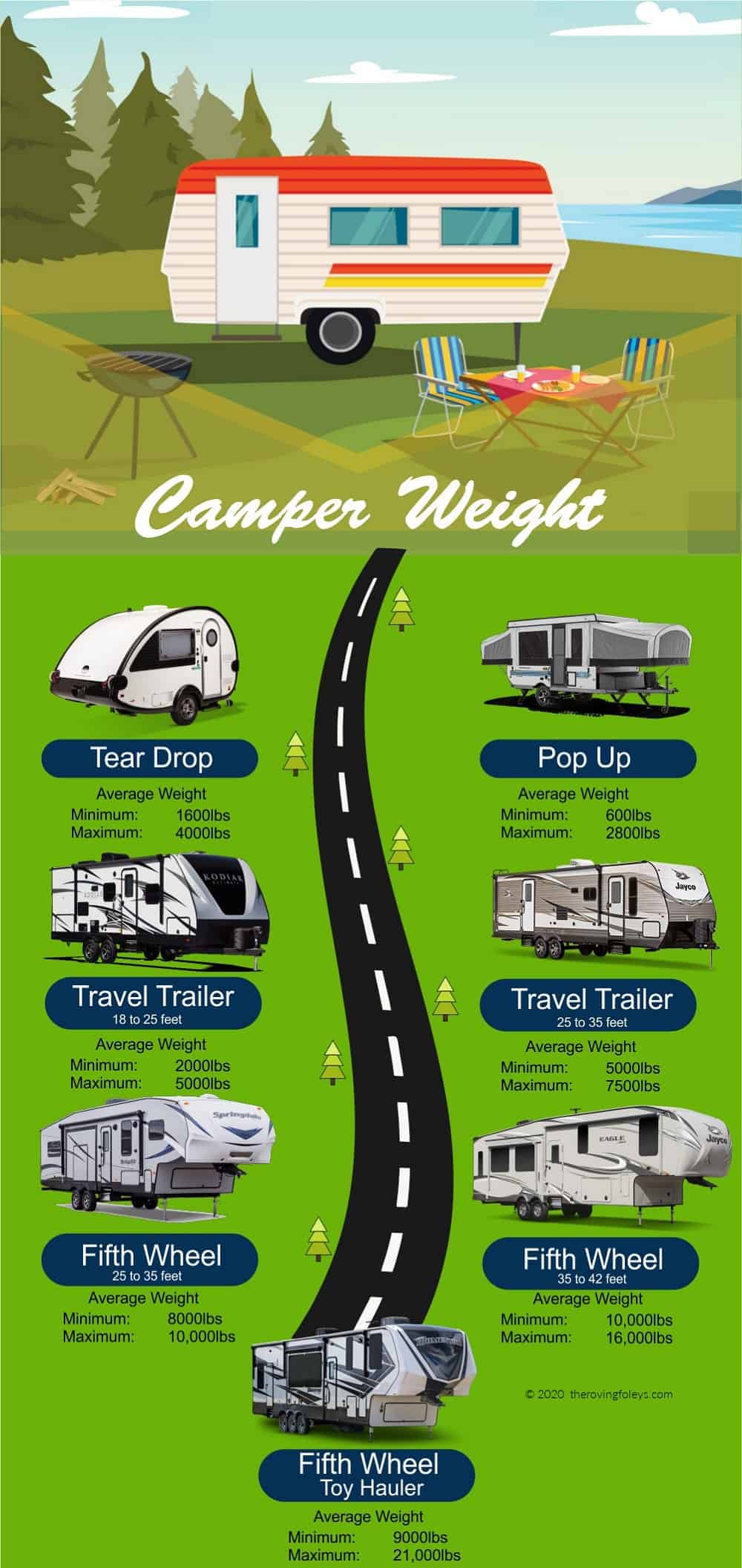Understanding Travel Trailer Weights
Travel trailers are a fantastic way to explore the great outdoors while enjoying the comforts of home. But when considering a travel trailer, one of the first questions that comes to mind is, “How much does it weigh?” Weight is vital for safety, fuel efficiency, and ensuring your vehicle can tow it. Let’s embark on a journey to understand the various types of travel trailers and their weights.
Types of Travel Trailers
Travel trailers come in various shapes and sizes, each tailored to different needs and preferences. Here’s a breakdown:
1. Traditional Travel Trailers
These trailers are the most common and can range anywhere from 1,500 to 8,000 pounds.
2. Lightweight Travel Trailers
Designed for easy towing, lightweight trailers typically weigh between 1,000 to 4,500 pounds.
3. Hybrid Travel Trailers
Combining hard and soft sides, these trailers generally weigh 2,200 to 5,500 pounds.
4. Toy Haulers
Perfect for those with ATVs or motorcycles, these trailers usually weigh between 3,000 to 8,000 pounds.
Factors Influencing Travel Trailer Weight
The weight of a travel trailer is influenced by several factors:
Construction Materials
The materials used in the trailer’s construction significantly impact its weight. Aluminum trailers tend to be lighter compared to traditional steel ones.
Size and Length
Longer trailers usually weigh more due to additional materials required for their construction.
Features and Amenities
Luxury features like slide-outs, larger kitchens, and entertainment systems can add considerable weight to the trailer.
Understanding Travel Trailer Weight Ratings
When evaluating a travel trailer’s weight, it’s essential to understand three key weight ratings:
1. Dry Weight
This is the weight of the trailer when empty, without any cargo, fluids, or passengers.
2. Gross Vehicle Weight Rating (GVWR)
The maximum weight a trailer can safely handle when fully loaded, including cargo and fluids.
3. Payload Capacity
The difference between the GVWR and the dry weight, indicating how much cargo you can add to your trailer.
Travel Trailer Weight Comparison Table
| Type of Travel Trailer | Typical Weight Range | Example Models |
|---|---|---|
| Traditional Travel Trailers | 1,500 – 8,000 lbs | Forest River Cherokee, Jayco Jay Flight |
| Lightweight Travel Trailers | 1,000 – 4,500 lbs | Airstream Basecamp, Coachmen Apex |
| Hybrid Travel Trailers | 2,200 – 5,500 lbs | Rockwood Roo, Forest River Flagstaff |
| Toy Haulers | 3,000 – 8,000 lbs | Keystone Raptor, Forest River XLR Boost |

Travel Trailer Ratings and Reviews
Top Rated Travel Trailers
When selecting the best travel trailer for your needs, it’s essential to look at reviews from reputable sources. Here are some highly rated trailers:
- Airstream Flying Cloud: Rated 4.9/5 on Camping World. Renowned for its durability and luxury.
- Jayco Jay Flight: Rated 4.7/5 on RVTrader. Known for its family-friendly features.
- Forest River Cherokee: Rated 4.6/5 on RV Insider. Praised for its affordability and versatility.
Personal Travel Experiences with Travel Trailers
Our Journey through National Parks
During our last summer trip, we decided to explore several national parks across the U.S. We rented a lightweight travel trailer, weighing about 3,000 pounds. The ease of towing with our SUV made the experience stress-free as we ventured into Yosemite, Zion, and the Grand Canyon. Each park offered breathtaking views and unique experiences that we cherished.

Travel Tips for Towing a Travel Trailer
Whether you’re a seasoned traveler or a novice, here are some essential tips for towing a travel trailer:
1. Know Your Vehicle’s Towing Capacity
Always consult your vehicle’s manual to understand its towing capacity to prevent potential hazards on the road.
2. Distribute Weight Evenly
Properly distribute your cargo to maintain stability while driving. Aim for a 60/40 weight distribution between the front and rear of the trailer.
3. Practice Towing
If you’re new to towing, practice in an open area to get comfortable with the vehicle and trailer’s dynamics.
Pros and Cons of Owning a Travel Trailer
Pros
- Freedom to travel at your own pace
- Comfort of home on the road
- Ability to camp in various locations
Cons
- Initial purchase and maintenance costs
- Towing can be challenging for some
- Parking and storage can be an issue

Destination Highlights: Best Places to Visit with Your Travel Trailer
1. Yellowstone National Park
Home to geysers and stunning landscapes, Yellowstone is a must-visit for any traveler.
2. Grand Canyon National Park
The awe-inspiring views of the Grand Canyon will leave you breathless. There are numerous campgrounds suitable for travel trailers.
3. Acadia National Park
With its rocky coastline and picturesque views, Acadia offers a unique experience for campers and nature lovers alike.
Frequently Asked Questions (FAQs)
How much does a typical travel trailer weigh?
Most travel trailers weigh between 1,500 to 8,000 pounds, depending on size and construction.
What is the average dry weight for a travel trailer?
The average dry weight for a travel trailer is around 4,500 pounds.
Can a SUV tow a travel trailer?
Many SUVs can tow travel trailers, especially lightweight models. Always check your SUV’s towing capacity before proceeding.
What should I consider when purchasing a travel trailer?
Consider the trailer’s weight, features, towing capacity, and personal travel needs.